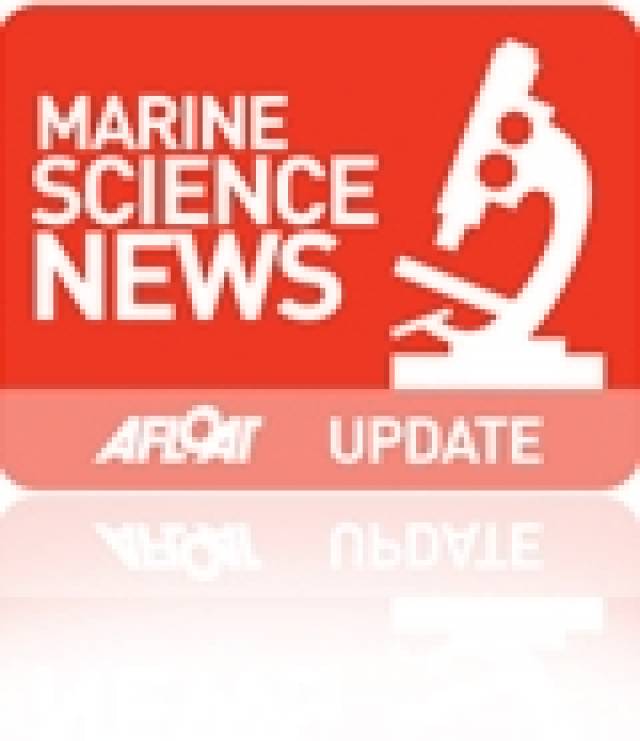#MarineScience - An international team of scientists led by Prof Andy Wheeler of University College Cork have discovered a new habitat for coral in Irish waters – possibly doubling the amount of cold water corals previously thought to exist in the area – while on the Marine Institute's RV Celtic Explorer during the QuERCi survey.
While conducting research on Irish cold water coral reefs, Prof Wheeler investigated a submerged vertical cliff 800m below the sea surface and found it covered in coral.
"The seabed just falls away into a deep chasm. We couldn't wait to take a look down there, using the Holland I remotely-operated vehicle [or ROV] which is equipped with cameras and robotic sampling arms," he said.
Prof Wheeler and his team have been investigating Irish cold water coral reefs for over 15 years. In the deep, cold, dark Atlantic, these corals form reef habitats supporting a diverse and abundant ecosystem.
It was while mapping and inspecting some previously unconfirmed reefs on the edge of the Porcupine Bank Canyon, 300km offshore from Dingle, that the scientists decided to venture further into the canyon itself.
The ROV Holland I was manoeuvred from a 2,100m water depth in the middle of the canyon, up the canyon wall to the coral reefs clustered around the canyon top at 700m water depth. The bottom of the canyon was choked with organic-rich particles flushing down the canyon on the way to the abyssal plain.
"It was like flying the ROV through a snow blizzard," said Dr Chris McGonigle of Ulster University, "but we just pushed up the canyon and it got steeper and steeper and steeper until we faced this vertical cliff face several hundred metres high."
The cliff face, never seen by humans before, was covered in corals and other associated organisms.
"These near vertical habitats hardly feature on maps yet can be hundreds of metres high and extend for tens of kilometres. This is a massive habitat, barely explored, yet full of ocean life", said Dr Agostina Vertino of the University of Milan-Bicocca. "We found many species of coral, sponges, crabs and fish."
Prof Wheeler believes it is "not unfeasible that there is over 100sqkm of coral habitat that was previously unaccounted for."
The coral discovery site has already been designated a Special Area of Conservation due to coral reefs in the vicinity. Yet despite its protection, the international team lead by Prof Wheeler found snagged fishing gear and litter.
"It is a great shame, we are the first people to see this place yet despite of its remoteness there is still evidence of human impacts," he said.
The RV Celtic Explorer is Ireland's state-of-the-art research vessel and has been recently equipped with new seabed mapping sonars giving unprecedented views of the seabed. The ship is also the dive platform for the Holland I ROV.
"The quality of the data that this ship and ROV can now collect is phenomenal," said Dr McGonigle. "We were seeing details on the seabed that a few years ago we could only have dreamed of.
"This increase in data quality will allow us to develop a much greater understanding of the processes controlling the distribution of life in these unique environments."
Congratulating Prof Wheeler and the team on their discoveries, Mick Gillooly, director at the Marine Institute, said "we are delighted to see the recent upgrade of the Celtic Explorer and the ROV Holland's multibeam sonar suite producing such amazing results for this expedition.
"The high resolution images produced are fundamental in helping scientists with their research as well as helping us provide a better understanding our ocean."

































































